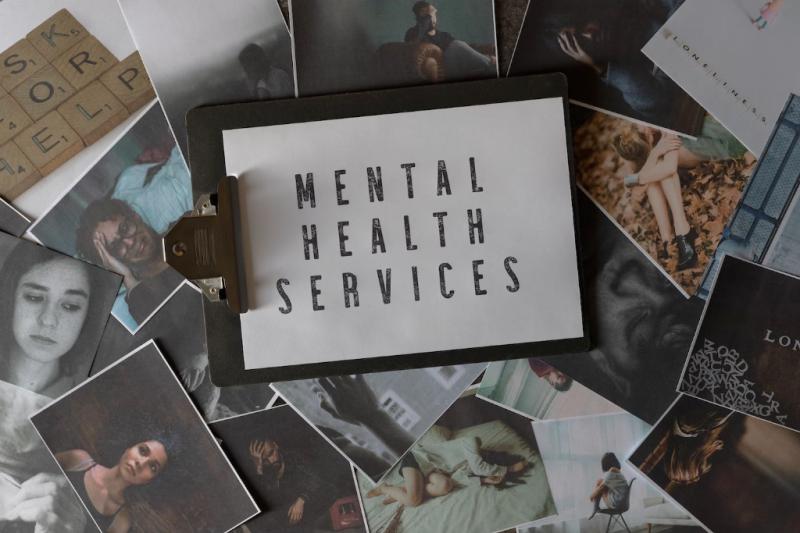Top Technology Innovations That Improved Mental Healthcare Practice

Did you know that mental health and substance use disorders plague 13% of the global population? According to SingleCare, it's a fact and a dire one. Mental healthcare is a growing industry, but it's also traditionally overlooked in tech innovation.
There are many reasons for this. One is that technology can be challenging to understand and implement in mental health clinics, with their high turnover rates and large volumes of paperwork.
Another reason is that mental illness's stigma makes it harder for patients and caregivers to talk about the topic. Yet another reason is that many people confuse mental health with physical health. It has created an environment where we often don't focus on what kinds of innovations we need to improve our ways of treating depression, anxiety, autism spectrum disorder (ASD), schizophrenia, and other conditions every day.
This article will discuss technological innovations that have changed how we practice our craft and help others struggling with these issues daily.
E-prescribing
E-prescribing is a method of writing, submitting, and receiving prescriptions electronically. It allows for better communication between the doctor and pharmacist, reducing errors, improving patient safety, and saving time and money.
How does this work? Instead of printing out a physical copy of your prescription to drop off at your pharmacy, you'll present it via digital means such as fax or email.
The pharmacist will also receive this order electronically, and they can click through to confirm that it's correct before filling out the order. This entire process takes only seconds, whereas using traditional methods would have taken days.
Telehealth
Telehealth has been used in mental health treatment for decades. It can be an excellent way to receive counseling services, especially for those who live far from a clinic or do not have easy access to transportation. According to AMA, 85% of physicians stated that telehealth increased the timeliness of care.
Telehealth technology allows patients to connect with a therapist remotely via a computer or mobile device. They may speak through video chat, send text messages back and forth, or even use virtual reality headsets.
Mental Health Practice Management Software
Mental health practice management software is a must for any mental health practice. Software for mental health practices can be used to manage patient records, billing, and payments, track patient appointments and payments, link to electronic health record systems, provide access to clinical documentation, and more.
Mental health practices need better technology to provide the best care possible for their patients. With improved tools, psychiatrists can spend their time doing what they do best, treating patients' mental illnesses.
Virtual Reality Therapy
Virtual reality therapy is a form of treatment that uses virtual reality (VR) technology to address mental health issues. VR therapy involves using VR headsets and software designed to simulate a real-world environment. It's typically used for anxiety, phobias, and post-traumatic stress disorder (PTSD). According to Forbes, it has recorded a success rate between 66% and 90% in treating PTSD.
Virtual reality therapy can be used with traditional talk therapy or as an effective alternative to face-to-face counseling. For example, people with social anxiety might feel more comfortable facing their fears in a controlled environment than speaking face-to-face at an office building or school campus.
Wearable Devices
Wearable devices can help with sleep and stress management. They are more affordable and accessible than any other medical equipment, making them an excellent choice for patients who want to monitor their physical health without investing in larger wearable technology.
Wearable devices can also help people manage depression, anxiety, and other mental health issues by tracking their emotional state over time. Other reports show that wearables may help individuals as they work on overcoming addictions, including tobacco use or alcohol consumption, by providing real-time feedback on their progress throughout recovery.
Mental Health Apps
Mental health apps can be helpful tools for self-management. The best ones are equipped with tools that allow you to track symptoms, moods, and medication adherence. Some even come with online forums where people in similar situations can meet and discuss their experiences.
To determine which apps are worthwhile, look for ones reviewed by experts. Also, consider whether the platform is easy enough to use to make it manageable between you and your goal of getting better. If you can find a mental health app that works well for you, congratulations; you're one step closer to living a healthy life.
Technology Has Improved Mental Health Care in Several Ways
Technology has improved mental health care in several ways. First, it has improved the quality of care. Second, it has improved the efficiency of care. Thirdly, it has improved access to care, and fourthly, technology has improved outcomes for patients with mental disorders across all stages of life.
Technology should be part of your practice because it can help you deliver better outcomes for people with various conditions and ages, from children with autism spectrum disorders (ASD) to older adults experiencing depression or Alzheimer's disease (AD).
Conclusion
The future of mental health care is bright, and technology will play a big part in its evolution. The ability to prescribe medications electronically has helped improve efficiency and reduce paperwork. Telehealth services allow patients and clinicians to connect instantly, improving accessibility.
More to Read:
Previous Posts:








